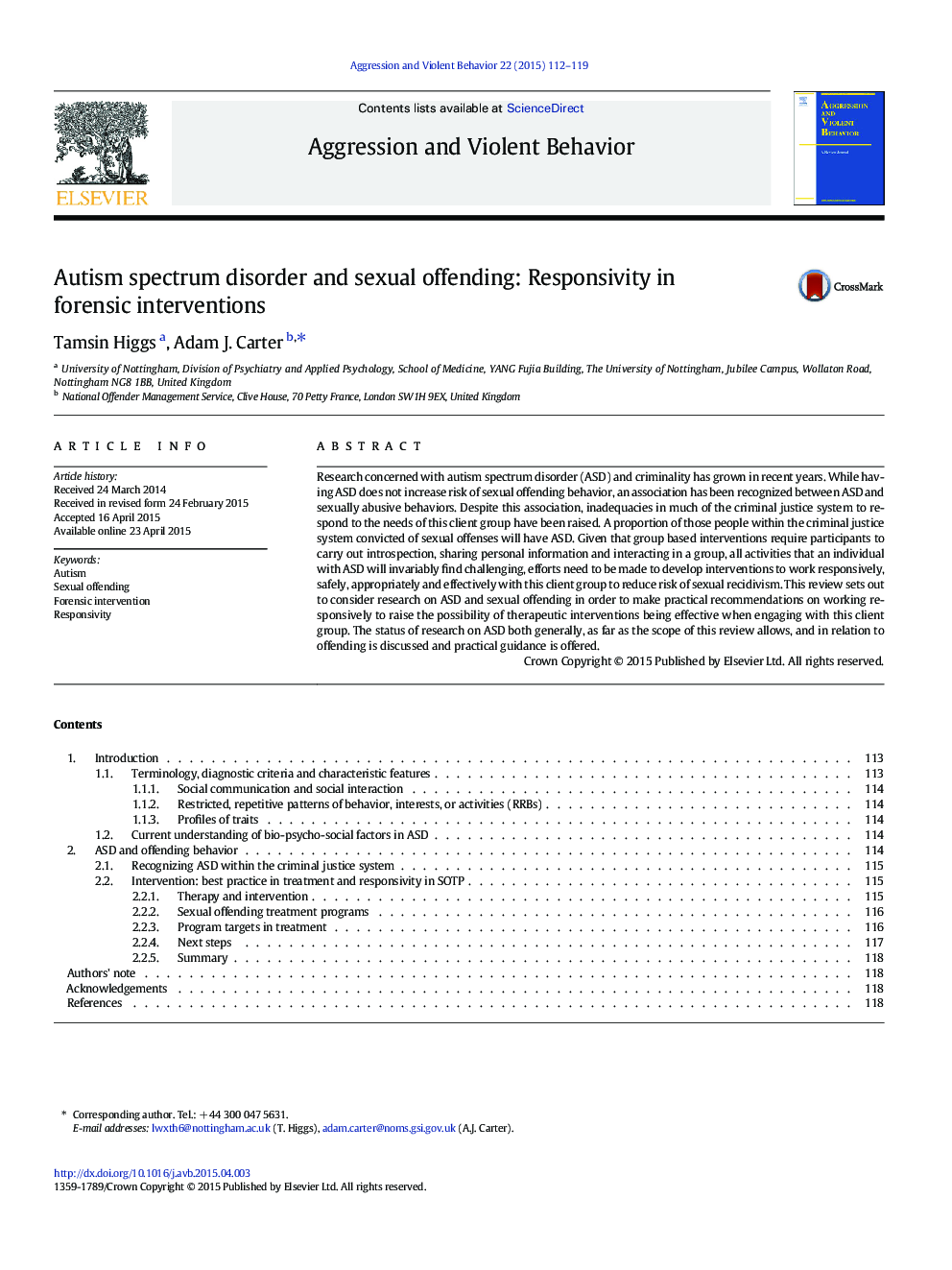| Article ID | Journal | Published Year | Pages | File Type |
|---|---|---|---|---|
| 94504 | Aggression and Violent Behavior | 2015 | 8 Pages |
•The role of ASDs in sexual offending is not well understood empirically.•Vulnerability for sexual offending may be associated with specific ASD difficulties.•Deficits in ASDs present challenges in sexual offending treatment programs.•We are able to suggest responsive approaches for forensic practice.•We emphasize the need for high quality research in this area.
Research concerned with autism spectrum disorder (ASD) and criminality has grown in recent years. While having ASD does not increase risk of sexual offending behavior, an association has been recognized between ASD and sexually abusive behaviors. Despite this association, inadequacies in much of the criminal justice system to respond to the needs of this client group have been raised. A proportion of those people within the criminal justice system convicted of sexual offenses will have ASD. Given that group based interventions require participants to carry out introspection, sharing personal information and interacting in a group, all activities that an individual with ASD will invariably find challenging, efforts need to be made to develop interventions to work responsively, safely, appropriately and effectively with this client group to reduce risk of sexual recidivism. This review sets out to consider research on ASD and sexual offending in order to make practical recommendations on working responsively to raise the possibility of therapeutic interventions being effective when engaging with this client group. The status of research on ASD both generally, as far as the scope of this review allows, and in relation to offending is discussed and practical guidance is offered.
